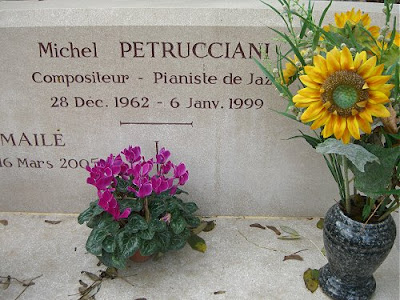Music they will like tomorrow

Manifesto - The origin of this collection lies in a statement of fact, the evidence of a refusal. No Format. You can't be more explicit.That manifesto is a refreshing contrast to the usual music industry PR crapola that arrives in my inbox every day, even if it has lost a little in translation. No Format is a new French label; I don't need to tell you much more about it as their own words coupled with one of the slickest music websites I've seen for some time say it all.
For the very simple reason that, either too fragile, too radical, too singular, too typecast, too elitist, too popular, too adult, too puerile, too mature, too immature, too crossbred, too recognition-demanding, too melodic, too improvised, too modern or too timeless - all the kinds of music published here would never have found room in the false musicscape manufactured by the taste-formatting logic today reigning over the record-industry. Too much, too much, too much - the average is out of scope ! Where is it, then? For, finally, it exists : that luxuriant diversity brimming over from its categories, exploding all systems.
And at the other end of the chain, you exist also, as "short-cut" music-lovers - all of you different in your confused desires for the unheard-of and the unexpected, and all similar, too, when the unknown asserts itself and, as if by magic, reveals itself the object of your most deeply-embedded fantasies...
It is precisely because you never know what you desire in advance that No Format exists today.
With no precise aesthetic orientation, but with true artistic demands; without ideological racism, but against all forms of uniformity - in an authentic spirit of curiosity with regard to others, open to all visions of the world, all poetries, all experiences and all musical expressions, No Format, a genuine breath of fresh air, does not so much fill a void as it opens a breach.
Let it carry you away !
No Format came to my attention via their CD Chamber Music featuring kora player Ballaké Sissoko and cellist Vincent Segal. Recorded in Bamako, Mali this mellow disc manages to avoid the usual over-sweetness and lack of variety that dog many kora releases. Chamber Music does exactly what is says in the manifesto, plus it comes with some very interesting 'no format' documentation.
William Glock, that champion of Pierre Boulez and new music in general, was also a disciple of the 'no format' approach during his time at the BBC in the early 1960s and he described his programming philosophy as follows:
'In this respect I have remained an enthusiastic disciple of [Lord] Reith, and can remember very early on an occasion at Broadcasting House when, to Lord Pilkington's sudden enquiry as to what I wanted to offer BBC listeners, I said without hesitation: 'What they will like tomorrow.''When will they ever learn?
Now on Facebook and Twitter. William Glock quote is from Notes in Advance: An Autobiography in Music. Chamber Music was bought at retail from Prelude Records. Any copyrighted material on these pages is included as "fair use", for the purpose of study, review or critical analysis only, and will be removed at the request of copyright owner(s). Report broken links, missing images and errors to - overgrownpath at hotmail dot co dot uk






Comments